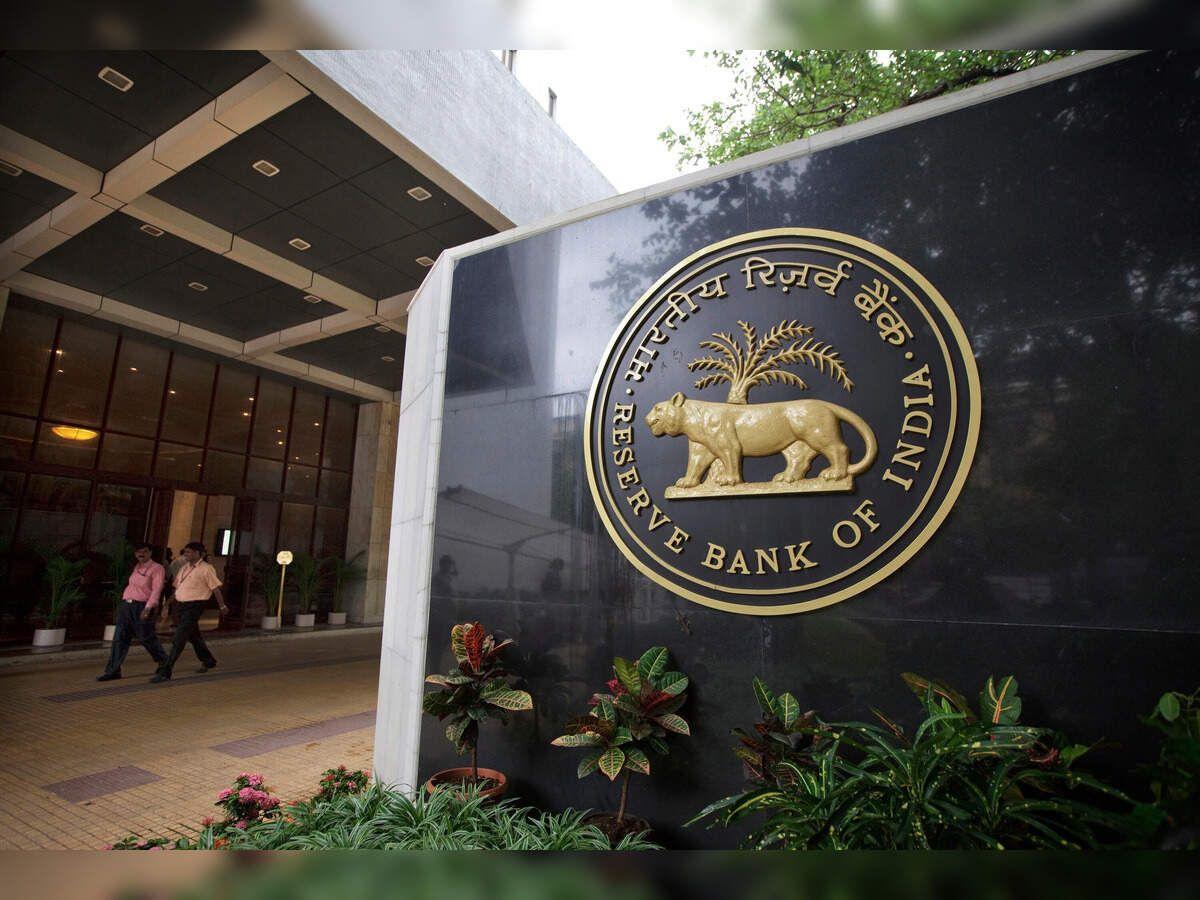RBI Committee Proposes Comprehensive AI Framework for India's Financial Sector
6 Sources
6 Sources
[1]
India cenbank committee recommends AI framework for finance sector
MUMBAI, Aug 13 (Reuters) - A Reserve Bank of India committee has recommended a framework for developing AI capabilities for the country's financial sector, while safeguarding it against associated risks, according to a report released on Wednesday. The committee has recommended setting up a digital infrastructure to help build indigenous AI models and a multi-stakeholder standing committee to evaluate risks and opportunities. It also suggested building a fund to incentivise the development of homegrown AI models tailored for the needs of India's financial services sector. "The report envisions a financial ecosystem where encouraging innovation is in harmony, and not at odds, with mitigation of risk," the RBI said in a statement. The report contains 26 recommendations under six categories including infrastructure, capacity, policy, governance, protection and assurance. Other key recommendations by the eight-member committee headed by Pushpak Bhattacharyya, a computer scientist at IIT Bombay, include issuing of an enabling framework to integrate AI with existing digital public platforms such as instant payment system UPI, and designing audit frameworks. The central bank had set up the committee in December to develop a Framework for Responsible and Ethical Enablement of Artificial Intelligence (FREEAI) for the finance sector. "The challenge with regulating AI is in striking the right balance, making sure that society stands to gain from what this technology has to offer, while mitigating its risks," according to the report. Reporting by Ashwin Manikandan; Editing by Shinjini Ganguli Our Standards: The Thomson Reuters Trust Principles., opens new tab
[2]
RBI's Prescription to Fin Sector Using AI: Trust is Non-Negotiable, Go People First
Only 20.8% of surveyed entities using or developing AI, with adoption skewed towards large banks. In its most comprehensive policy blueprint yet for use of artificial intelligence (AI) in finance, the Reserve Bank of India (RBI) released a 'Framework for responsible and ethical enablement of AI' (FREE‑AI), with a regulatory roadmap comprising 26 recommendations. The document aims to harness AI's transformative potential while safeguarding trust, ethics, and stability in India's financial system. FREE-AI was prepared by a committee set up by RBI in December 2024 and chaired by IIT Bombay professor Pushpak Bhattacharyya. It examined global regulations, conducted industry surveys covering over 600 supervised entities, and engaged with multiple stakeholders before finalising the principles, as per an official release. A survey conducted by the committee showed low but growing adoption of AI in the financial sector. Only 20.8% of the 612 entities surveyed by the committee were using or developing AI, with adoption skewed towards large banks. Most deployments were in low‑risk areas like customer support, marketing, credit underwriting and cybersecurity tools. Smaller urban cooperative banks and NBFCs cited cost, data quality, and talent constraints as barriers. The committee emphasised that trust is non-negotiable and should remain uncompromised. It highlighted the people-first approach, adding that AI should augment human decision-making, but defer to human judgment and citizen interest. It called for fostering responsible innovation with purpose, fairness, and equity. The committee also underlined that AI outcomes should be fair and non-discriminatory. Besides, it stressed on accountability, noting that responsibility rests with the entities deploying AI. It said that AI should be understandable by design to ensure explainability for trust. Finally, the committee stressed safety, resilience, and sustainability, stating that AI systems should be secure, resilient, and energy-efficient. Most crucial among the 26 recommendations in the panel's regulatory roadmap are the creation of a high-quality financial sector data infrastructure integrated with AI Kosh to democratise access to trustworthy AI models. The committee also recommended setting up an AI innovation sandbox to allow safe experimentation in developing financial AI solutions; providing incentives, funding support, and shared compute "landing zones" so that smaller and underserved financial institutions can adopt AI. It called for the development of indigenous, domain-specific AI models for the Indian financial sector, especially multilingual and inclusion-focused ones. The committee also suggested adopting a graded AI liability framework that continues to hold institutions accountable but offers supervisory leniency for first-time failures with safeguards, besides embedding robust data lifecycle governance and AI model lifecycle oversight, particularly for autonomous AI systems.
[3]
RBI committee recommends AI framework for finance sector - The Economic Times
A Reserve Bank of India panel suggests a plan for Artificial Intelligence in finance. The proposal includes building local AI models and a risk assessment group. It also suggests a fund to boost Indian AI development. The aim is to balance innovation and risk control. The plan has 26 suggestions, including integrating AI with UPI and audit systems.A Reserve Bank of India committee has recommended a framework for developing AI capabilities for the country's financial sector, while safeguarding it against associated risks, according to a report released on Wednesday. The committee has recommended setting up a digital infrastructure to help build indigenous AI models and a multi-stakeholder standing committee to evaluate risks and opportunities. It also suggested building a fund to incentivise the development of homegrown AI models tailored for the needs of India's financial services sector. "The report envisions a financial ecosystem where encouraging innovation is in harmony, and not at odds, with mitigation of risk," the RBI said in a statement. The report contains 26 recommendations under six categories including infrastructure, capacity, policy, governance, protection and assurance. Other key recommendations by the eight-member committee headed by Pushpak Bhattacharyya, a computer scientist at IIT Bombay, include issuing of an enabling framework to integrate AI with existing digital public platforms such as instant payment system UPI, and designing audit frameworks. The central bank had set up the committee in December to develop a Framework for Responsible and Ethical Enablement of Artificial Intelligence (FREEAI) for the finance sector. "The challenge with regulating AI is in striking the right balance, making sure that society stands to gain from what this technology has to offer, while mitigating its risks," according to the report. (Reporting by Ashwin Manikandan; Editing by Shinjini Ganguli)
[4]
AI mistakes can be tolerated, RBI panel on AI in finance recommends leniency for first-time errors
Reserve Bank of India panel suggests leniency for initial AI mistakes in finance. This encourages innovation with strong safety measures. The panel proposes seven guiding principles for AI use. Recommendations include better data infrastructure and AI testing. Banks should adopt AI policies and protect customers. Continuous monitoring and public reporting are also important. This ensures safe and credible AI use. The Reserve Bank of India (RBI) panel examining the use of artificial intelligence (AI) in the financial sector has recommended that regulators adopt a "tolerant supervisory stance" towards first-time mistakes made by AI systems. The panel said allowing institutions some leeway, provided they have strong safety measures, could encourage innovation without compromising oversight, a TOI report stated. The report notes that AI is inherently probabilistic and non-deterministic. It warns that strict liability for every error could make developers overly cautious, limiting AI's potential to deliver new solutions. The panel's approach may raise debate, as it could be seen as prioritising institutional flexibility over protecting customers from losses caused by AI errors. The framework is built on seven "sutras": maintain trust; keep people in control; foster purposeful innovation; ensure fairness and inclusion; uphold accountability; design for transparency; and build secure, resilient, energy-efficient systems that can detect and prevent harm. The panel made 26 recommendations, including improving data infrastructure, creating AI testing sandboxes, and developing indigenous models to support smaller players. Regulators are urged to draft flexible rules and apply liability proportionately. Banks are advised to adopt board-approved AI policies, strengthen data governance, and protect customers through transparency, effective grievance systems, and robust cybersecurity. The report also calls for continuous monitoring, public reporting, and sector-wide oversight to ensure AI use remains safe and credible.
[5]
RBI panel submits report on framework for AI use to foster innovation and mitigate risks in financial sector
As Artificial Intelligence enters everyday life, the Reserve Bank of India's panel on Wednesday submitted its report on framework for Responsible and Ethical Enablement of Artificial Intelligence (FREE-AI) in the financial sector. "The framework is anchored in seven sutras which serve as the foundational principles and is operationalised through twenty-six targeted recommendations under six strategic pillars," said RBI in its document. "In order to encourage the responsible and ethical adoption of AI in the financial sector, the FREE-AI Committee was constituted by the Reserve Bank of India. The RBI conducted two surveys to understand current AI adoption and challenges in the financial sector. The Committee referenced these surveys and, in addition, undertook extensive stakeholder consultations to gain further insights," said the RBI panel's document. The Committee formulated 7 Sutras that represent the core principles to guide AI adoption in the financial sector. These are: (i) Trust is the Foundation (ii) People First (iii) Innovation over Restraint (iv) Fairness and Equity (v) Accountability (vi) Understandable by Design (vii) Safety, Resilience and Sustainability
[6]
RBI FREE-AI Committee Calls For Sector-Specific AI Models, Etc.
The Reserve Bank of India's (RBI) FREE-AI Committee has outlined several recommendations for responsible AI integration in the financial sector. These include the creation of an AI sandbox, development of indigenous sector-specific models, cybersecurity measures, and consumer protection, among others. The suggestions aim to develop a Framework for Responsible and Ethical Enablement of Artificial Intelligence (FREE-AI) in the financial sector, as stipulated during the Committee's establishment in December 2024. This followed the RBI cognising that risks such as data privacy and algorithmic bias accompanied the potential of AI to automate complex processes. Accordingly, the Committee comprised members who have worked for industry bodies like NASSCOM, educational institutions like IIT Bombay and IIT Madras, companies like Microsoft, and financial bodies like HDFC Bank. The Committee adopted a four-pronged approach -- stakeholder engagement, surveys & interactions, review of global developments, and analysis of extant regulatory guidelines to develop their findings. AI has been integrated into several business functions in the financial sector, like risk management, fraud detection, and customer service. Institutions can utilise AI for credit scoring, handling chatbot queries, forecasting early warning signals, and improving efficiency overall. Several India-specific use cases for AI include: RBI's Department of Supervision (DoS) and the FinTech Department (FTD) conducted two surveys of 612 supervised entities and 76 entities between January and May 2025, respectively. These tests aimed to gauge the current state of AI adoption across the financial sector. The key findings were as follows: Risks engendered by AI may undermine market integrity, erode consumer trust, and amplify systemic vulnerabilities. These include: Noting the integration of AI into the financial services sector, several jurisdictions have explored different policy approaches. European Union (EU): The EU AI Act is a central omnibus law that requires all AI applications to adhere to a central framework regardless of the sector. The Act also categorises the impact of a model based on various parameters, tokens, amount of compute, modalities, etc. Notably, AI systems have been classified into unacceptable, high, limited, and minimal risk categories. United Kingdom: This jurisdiction has a pro-innovation approach to AI, as promoted by the Artificial Intelligence (Regulation) Private Members' Bill. The UK allows sectoral regulators to decide the necessity for enacting subordinate legislation or being more proactive about how the new harms caused by AI should be covered. China: The East Asian country's approach is defined as layered, regulating different kinds of AI, like fake news, generative AI, and algorithmic regulations under broad guiding principles and elaborate binding administrative regulations. It is embodied by the enactment of principles like the Interim Measures for the Management of Generative AI Services, 2023, and the AI Content Labelling Rules, 2025. Singapore: This jurisdiction follows the approach of co-regulation based on a multi-stakeholder approach, with a view to strengthen its public-private digital economy and ensure responsible innovation in the fintech ecosystem. It is exemplified by the Model AI Governance Framework for Generative AI, the Veritas Toolkit and the FEAT (Fairness, Ethics, Accountability and Transparency) principles. India's position concerning AI aims to foster innovation while addressing ethical and governance concerns. Accordingly, the NITI Aayog's National Strategy for Artificial Intelligence delves into leveraging AI across sectors like healthcare, education, and others. Additionally, the IndiaAI Mission, with a Rs 10,372 crore financial outlay and seven strategic pillars, aims to democratise access to compute infrastructure, among other objectives. Moving forward, in 2025, the Securities and Exchange Board of India (SEBI) released a consultation paper on responsible usage of AI/ML in the Indian securities market. The report made several recommendations on aspects like investor protection-disclosure, model governance, data privacy, and fairness & bias. Besides this, RBI has undertaken a regulatory approach which is technology agnostic and operates with the principles of fairness, transparency, accountability, etc. In that regard, existing RBI regulations address key aspects of AI governance across different tasks: Based on the analysis of global precedents, India's regulations, and stakeholder surveys, the Committee has formulated seven 'Sutras' or foundational principles for AI deployment in the financial sector: Accordingly, the Committee proposes two frameworks -- the Innovation Enablement Framework and the Risk Mitigation Framework -- with different pillars. This aspect focuses on enabling opportunities, removing barriers, and accelerating AI adoption. Its pillars are as follows: For AI in finance, infrastructure comprises data ecosystems, compute capacity, and public goods powering experimentation. Policies related to financial services should remain flexible, proactive, and future-ready. Individuals, teams, and institutions should be equipped with knowledge, skills, and the necessary mindset to encourage innovation. This aspect focuses on ensuring that AI is deployed safely and responsibly. Its pillars are as follows: RBI urges a transparent and accountable governance structure that ensures alignment with regulatory expectations, ethics, and business objectives. The protection of data, confidential information, and consumer interests is important to build trust. This pillar deals with oversight throughout the AI lifecycle, and focuses on monitoring emerging risks and feeding those insights into system-wide responses.
Share
Share
Copy Link
The Reserve Bank of India's committee has recommended a framework for responsible AI adoption in the financial sector, balancing innovation with risk mitigation and emphasizing trust, fairness, and accountability.
RBI Committee Proposes AI Framework for Financial Sector
The Reserve Bank of India (RBI) has taken a significant step towards integrating Artificial Intelligence (AI) into the country's financial sector. A committee set up by the RBI has recommended a comprehensive framework for developing AI capabilities while safeguarding against associated risks
1
2
.
Source: ET
Key Recommendations and Principles
The committee, chaired by IIT Bombay professor Pushpak Bhattacharyya, has put forward 26 recommendations under six categories: infrastructure, capacity, policy, governance, protection, and assurance
1
. These recommendations are anchored in seven core principles, or "sutras," which include:- Trust as the foundation
- People-first approach
- Innovation over restraint
- Fairness and equity
- Accountability
- Understandable by design
- Safety, resilience, and sustainability
5
Infrastructure and Innovation
One of the key proposals is the creation of a digital infrastructure to help build indigenous AI models tailored for India's financial services sector
1
. The committee also recommended setting up an AI innovation sandbox to allow safe experimentation in developing financial AI solutions2
.To support smaller and underserved financial institutions, the framework suggests providing incentives, funding support, and shared compute "landing zones"
2
. A fund to incentivize the development of homegrown AI models has also been proposed1
.Regulatory Approach and Risk Mitigation
The framework aims to strike a balance between encouraging innovation and mitigating risks. The committee has recommended a graded AI liability framework that continues to hold institutions accountable but offers supervisory leniency for first-time failures with safeguards
2
4
.Current AI Adoption in India's Financial Sector

Source: ET
A survey conducted by the committee revealed that only 20.8% of the 612 entities surveyed were using or developing AI, with adoption skewed towards large banks. Most deployments were in low-risk areas like customer support, marketing, credit underwriting, and cybersecurity tools
2
.Related Stories
Integration with Existing Systems
The committee has suggested issuing an enabling framework to integrate AI with existing digital public platforms such as the Unified Payments Interface (UPI)
1
3
. It also recommends designing audit frameworks to ensure responsible AI use1
.Ethical Considerations and Transparency

Source: Reuters
The framework emphasizes the importance of ethical AI use, calling for robust data lifecycle governance and AI model lifecycle oversight, particularly for autonomous AI systems
2
. It also stresses the need for transparency, effective grievance systems, and robust cybersecurity measures4
.This comprehensive framework represents a significant step towards harnessing the potential of AI in India's financial sector while ensuring responsible and ethical implementation. As the RBI moves forward with these recommendations, it will be crucial to monitor their impact on innovation, risk management, and overall financial stability.
References
Summarized by
Navi
[4]
Related Stories
RBI Forms FREE-AI Committee to Develop Responsible AI Framework for Financial Sector
27 Dec 2024•Policy and Regulation

RBI Deputy Governor Calls for Responsible AI Integration in Finance
08 Oct 2025•Policy and Regulation

RBI Governor Warns of AI Risks in Financial Sector, Calls for Caution
14 Oct 2024•Business and Economy

Recent Highlights
1
Google Gemini 3.1 Pro doubles reasoning score, beats rivals in key AI benchmarks
Technology

2
Meta strikes up to $100 billion AI chips deal with AMD, could acquire 10% stake in chipmaker
Technology

3
Pentagon threatens Anthropic with supply chain risk label over AI safeguards for military use
Policy and Regulation





